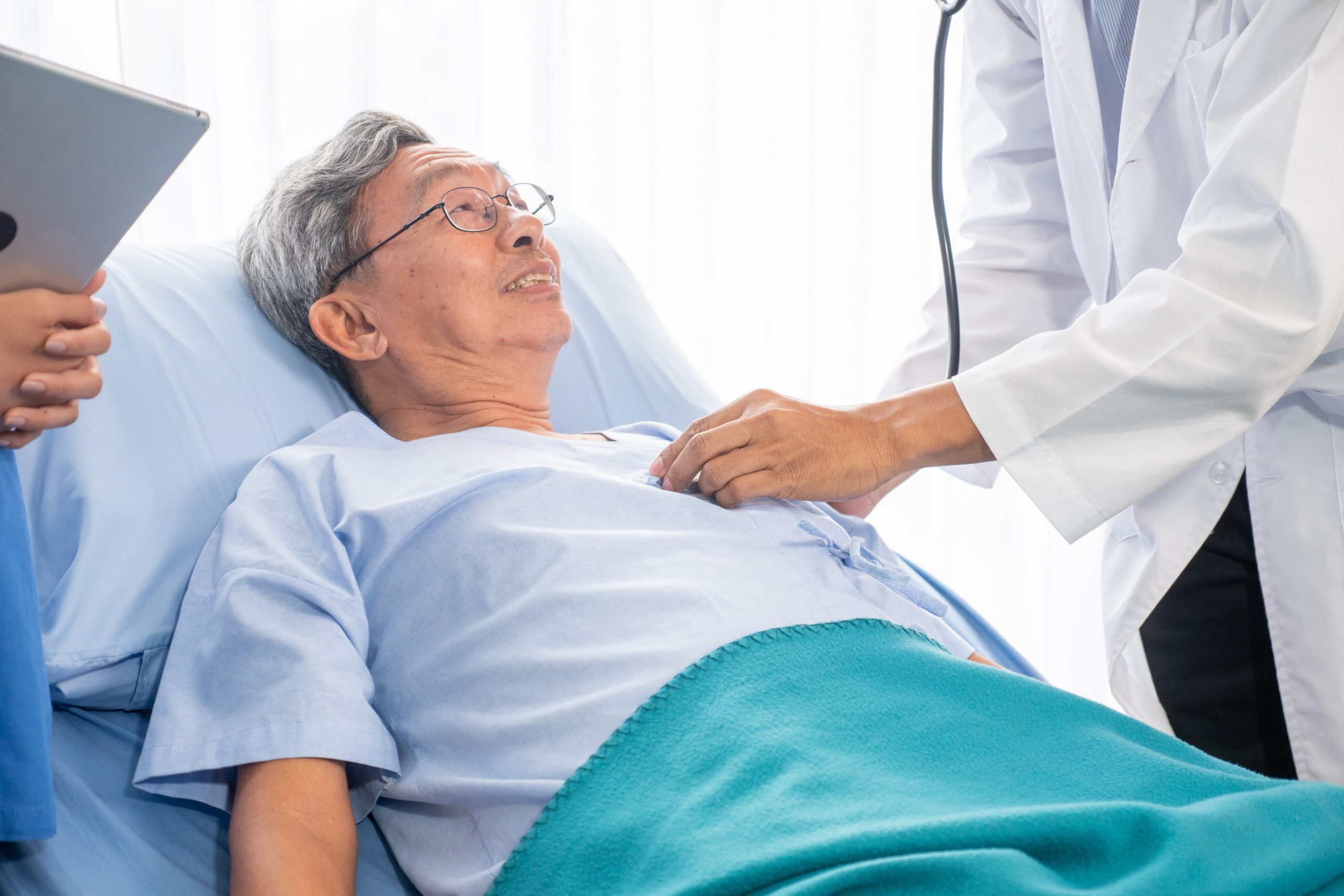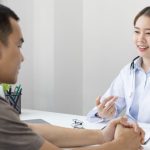
Men’s Health Checks: What and When?

FEBRUARY 23, 2022
There is nothing more important than your health.
The health of males in the family is not only a concern for the men themselves, but it is also a concern for the women who care about the health of their fathers, husbands, sons and brothers. While the life expectancy gap between men and women has decreased, men should not let their guard down when it comes to paying more attention to their bodies. Several things tend to work against men: they tend to smoke and drink more than women; they don’t seek medical help as often as women; some men define themselves by their work, which can also add on to stress. There are also health conditions that only affect men, such as prostate cancer, erectile dysfunction and low testerone. Other health risks that men face – such as colon cancer or heart disease – can be prevented and treated with early diagnosis. Screening tests are used to detect diseases early, especially when it is easier to treat, thus avoiding future complications or even death. That is why it is important to have regular checkups and screenings.
A health screening or awareness event is the first step in helping men become more aware and involved in achieving and maintaining good health. Screenings provide a friendly and informative atmosphere and can easily be worked into anyone’s hectic schedule. Depending on your budget, you can start with a small men’s health screening targeting one or two specific health areas, or you can have a more comprehensive package focusing on a multitude of men’s health areas. Comprehensive health checkups can be of great benefit to many men.
Many conditions don’t reveal themselves and can go undetected for many years with harmful effects. Conditions such as high blood pressure and high cholesterol usually don’t cause symptoms until they are advanced or severe. Other common diseases such as diabetes and the effects of alcohol, smoking and excess weight often go undetected until irreversible damage is done. The purpose of health screenings is to give a snapshot of a man’s health status and to advise and manage health and lifestyle problems before they become serious. This involves a full medical history and examination, investigations that include blood, urine and stool tests. The results can indicate whether certain areas need to be addressed sooner rather than later or just monitored over time.
High Cholesterol
High cholesterol is a risk factor for heart disease and strokes. Have your cholesterol checked regularly starting at the age of 35. If you are younger than 35, have your cholesterol level checked if you smoke, have diabetes or high blood pressure or if heart disease runs in your family.
Diabetes
Diabetes is a major risk factor for developing heart disease, stroke and kidney failure. Screening should start from age 40 onwards or earlier if one or both parents or a sibling has diabetes, or if you are obese (BMI>30).
Prostate Cancer
Prostate cancer is the second most common cancer in Australian men after skin cancer. Around 18,700 new cases are diagnosed in Australia every year. It is recommended that the following groups should be screened with a blood test:
- Men at 50 years of age with no family history of prostate cancer
- Men at 40 with a family history
Low Testosterone
Low levels of testosterone affect a man’s sex drive, physical features, mood and cause erectile dysfunction. Low levels can be caused by some diseases or it can just be an effect of aging. Men in their 50’s should have their levels checked because low testosterone can be treated with hormone replacement therapy.
Osteoporosis
In Australia, one in three men over 60 will suffer a fracture due to osteoporosis. This is a rate similar to that of women, which is generally estimated worldwide as one of three for women over 50. Risk factors for osteoporosis in men include: older age, low body weight, weight loss, physical inactivity, previous fractures not caused by substantial trauma, low-calcium diets, and ongoing use of certain drugs, such as corticosteroids like prednisone or drugs that are sometimes used to treat prostate cancer. Screening for osteoporosis should start from the age of 60 years with a DEXA (dual-energy x-ray absorptiometry) scan or earlier in the presence of any of the above risk factors.
There is nothing more important than your health.
The health of males in the family is not only a concern for the men themselves, but it is also a concern for the women who care about the health of their fathers, husbands, sons and brothers. While the life expectancy gap between men and women has decreased, men should not let their guard down when it comes to paying more attention to their bodies. Several things tend to work against men: they tend to smoke and drink more than women; they don’t seek medical help as often as women; some men define themselves by their work, which can also add on to stress. There are also health conditions that only affect men, such as prostate cancer, erectile dysfunction and low testerone. Other health risks that men face – such as colon cancer or heart disease – can be prevented and treated with early diagnosis. Screening tests are used to detect diseases early, especially when it is easier to treat, thus avoiding future complications or even death. That is why it is important to have regular checkups and screenings.
A health screening or awareness event is the first step in helping men become more aware and involved in achieving and maintaining good health. Screenings provide a friendly and informative atmosphere and can easily be worked into anyone’s hectic schedule. Depending on your budget, you can start with a small men’s health screening targeting one or two specific health areas, or you can have a more comprehensive package focusing on a multitude of men’s health areas. Comprehensive health checkups can be of great benefit to many men.
Many conditions don’t reveal themselves and can go undetected for many years with harmful effects. Conditions such as high blood pressure and high cholesterol usually don’t cause symptoms until they are advanced or severe. Other common diseases such as diabetes and the effects of alcohol, smoking and excess weight often go undetected until irreversible damage is done. The purpose of health screenings is to give a snapshot of a man’s health status and to advise and manage health and lifestyle problems before they become serious. This involves a full medical history and examination, investigations that include blood, urine and stool tests. The results can indicate whether certain areas need to be addressed sooner rather than later or just monitored over time.
High Cholesterol
High cholesterol is a risk factor for heart disease and strokes. Have your cholesterol checked regularly starting at the age of 35. If you are younger than 35, have your cholesterol level checked if you smoke, have diabetes or high blood pressure or if heart disease runs in your family.
Diabetes
Diabetes is a major risk factor for developing heart disease, stroke and kidney failure. Screening should start from age 40 onwards or earlier if one or both parents or a sibling has diabetes, or if you are obese (BMI>30).
Prostate Cancer
Prostate cancer is the second most common cancer in Australian men after skin cancer. Around 18,700 new cases are diagnosed in Australia every year. It is recommended that the following groups should be screened with a blood test:
- Men at 50 years of age with no family history of prostate cancer
- Men at 40 with a family history
Low Testosterone
Low levels of testosterone affect a man’s sex drive, physical features, mood and cause erectile dysfunction. Low levels can be caused by some diseases or it can just be an effect of aging. Men in their 50’s should have their levels checked because low testosterone can be treated with hormone replacement therapy.
Osteoporosis
In Australia, one in three men over 60 will suffer a fracture due to osteoporosis. This is a rate similar to that of women, which is generally estimated worldwide as one of three for women over 50. Risk factors for osteoporosis in men include: older age, low body weight, weight loss, physical inactivity, previous fractures not caused by substantial trauma, low-calcium diets, and ongoing use of certain drugs, such as corticosteroids like prednisone or drugs that are sometimes used to treat prostate cancer. Screening for osteoporosis should start from the age of 60 years with a DEXA (dual-energy x-ray absorptiometry) scan or earlier in the presence of any of the above risk factors.
Recent Post
-
Understanding Test Items Included in Health Screening
June 05, 2025 -
How To Choose a Health Screening Package
June 05, 2025 -
Heart Screening Singapore: What Is Coronary Artery
June 05, 2025




